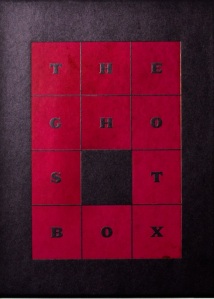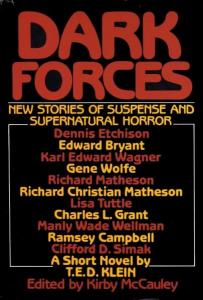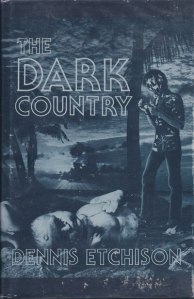
This is the second entry in a month-long series focusing on a horror anthology edited by Patton Oswalt called The Ghost Box (buy it here). The blog will resume its standard format in November.
* * *
Have you ever been out really late at night? I mean late, like two in the morning, when almost nothing is open and nobody is out. Have you ever found yourself in, say, a gas station, or one of those 24-hour diners? The employees behind the counter don’t really seem all there, do they? Sure, they’ll ring up your order and give you change, but they seem to look right through you. Like zombies, almost…
Dennis Etchison was born in Stockton, California in 1943, and has been publishing fiction regularly since 1961. The Viking-Penguin Encyclopedia of Horror & The Supernatural describes him as “the most original living horror writer in America.” He has won the British Fantasy Award three times for his writing and two World Fantasy Awards for his editorial work. “The Late Shift” first appeared in the legendary 1980 anthology Dark Forces, edited by Kirby McCauley (the same collection that gave us Stephen King’s “The Mist”). It was later included in Etchison’s 1982 collection The Dark Country.

The basic thrust of the story is that a man named Macklin discovers a clandestine corporation that reanimates corpses during the 48-or-so hours before they are buried and shops them out to gas stations, garages, convenience stores, and the like for cheap nighttime labor – a literal graveyard shift. In an interview, Etchison elaborates:
“The idea was how the capitalist system can extract its pound of flesh from you in labor even after you died. There is that mysterious period of time, two or three days between the time you died and the time that you’re cremated or buried. In a true capitalist system, which is interested in utilizing its resources to the max, they might find a way to make money off of you during that time, before your body is planted in the ground.”
In concept, this struck me as a sort of extension of George A. Romero’s 1978 film Dawn of the Dead. In that film, Romero used zombies mindlessly wandering a shopping mall as stand-ins for the American consumer. Etchison’s story broadens that idea to include the people who sell to those consumers as well.
Etchison’s anti-capitalist message is fully expressed in an extraordinary moment late in the story. Abducted by the corporation – its name is never revealed – Macklin finds himself in a van full of living corpses. Realizing the scope of the violations that have been committed, Macklin tells the corpses that their abuse will end, that they will soon be reclaimed by their loved ones and their lives will be celebrated. The depth of feeling in this passage, its compassion and rejection of exploitation, transcends mere pulp horror; the entire story is elevated by its presence.

In the introduction to Etchison’s short story collection Red Dreams, Karl Edward Wagner writes that Etchison’s fiction typically focuses on “an individual adrift in a society beyond his control, beyond his comprehension, in which only sheeplike acceptance and robotlike nonawareness permit survival.” There is an element of this idea in “The Late Shift.” Macklin’s friend Whitey is the first to recognize that something is wrong with the local convenience store clerk, and investigating those suspicions costs him dearly. Macklin likewise does not find himself in danger until he begins his own investigation. If the primary theme of the story is that capitalism commodifies everything, its secondary theme is that the systems of power that control our lives can and will respond violently to challenge.
Etchison’s prose is largely no-nonsense, though there are moments of poetry, as when he compares quiet voices to “the opening and closing of paper.” There are some elements of the writing that have not dated well, such as his use of the term “Amerinds” to describe Whitey, who is Native American; the term is considered offensive. I would like to hope, given the humanity Etchison displays elsewhere, that this was not deliberate on his part, but reading the story today it cannot be ignored.
The rare problematic moment aside, I enjoyed “The Late Shift.” It’s an effective blend of mystery and horror (though I know I’ve spoiled the mystery here), given extra dimensions by its social commentary. Will Errickson, writing for Tor, described it as “one of [Etchison’s] most lauded and original works.” Seek it out.
NEXT TIME: “N0072-JK1” by Adam Corbin Fusco!